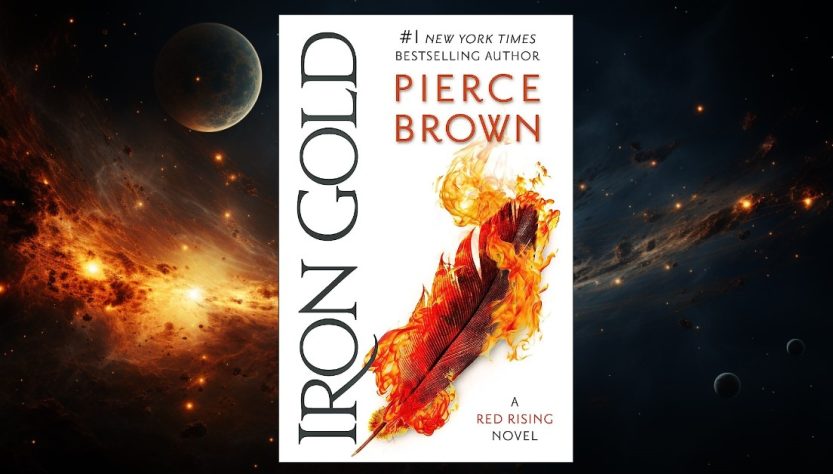Greetings, spacefarers! Today, our literary spaceship continues its voyage through Pierce Brown’s universe, venturing into the aftermath of the revolution with “Iron Gold”. Prepare yourselves for a thrilling expedition into new territories!
“Iron Gold” takes us a whole decade forward from the events of “Morning Star”. The revolution led by Darrow has reshaped society, but peace remains elusive. Through the viewpoints of four different characters, Brown explores the complexities and consequences of the post-revolutionary world, where new powers rise and old grudges persist.
In this sequel, Darrow’s heroism is contrasted with his flaws, reflecting the profound toll of his lifelong battle. New characters Lyria, a Red refugee; Ephraim, a disillusioned ex-soldier; and Lysander, heir to the Gold legacy, add their unique perspectives, enriching the narrative and offering insight into the wider impact of Darrow’s revolution.
The world-building in “Iron Gold” is as immersive as ever, with Brown expanding on his universe’s social and political structures. However, the tone of “Iron Gold” is darker, the stakes higher, and the lines between heroes and villains blur, adding a layer of complexity that resonates with the often murky realities of societal change.
Yet, readers should be prepared for a change of pace. “Iron Gold” delves deeply into the political and social complexities of its world, which, while fascinating, might seem slower compared to the relentless action of the original trilogy.
Why Should I Read This Book?
“Iron Gold” is a deep dive into the aftermath of revolution, an exploration of its triumphs and failures. If you’re interested in character-driven narratives, political intrigue, and the complexities of societal change, this book will captivate you. The multi-perspective narrative offers a broader view of the world, enriching the story and deepening our understanding of its universe.
Why Shouldn’t I Read This Book?
If you’re seeking the rapid-fire pace and clear moral lines of the original Red Rising trilogy, “Iron Gold” might throw you off balance. The pace is slower, the tone is darker, and the lines between right and wrong are not always clear.
In conclusion, “Iron Gold” takes us into uncharted territory, shedding light on the difficult realities of societal change and the price of revolution. It’s a complex, thought-provoking sequel that sets the stage for new conflicts while exploring the consequences of old ones.
As we disembark from this journey, it’s time to decide our next destination. Which celestial body shall we navigate towards next in our cosmic voyage of literature?
Buy it on Amazon:
or get this as an audiobook for FREE on Audible, by clicking the link below!


